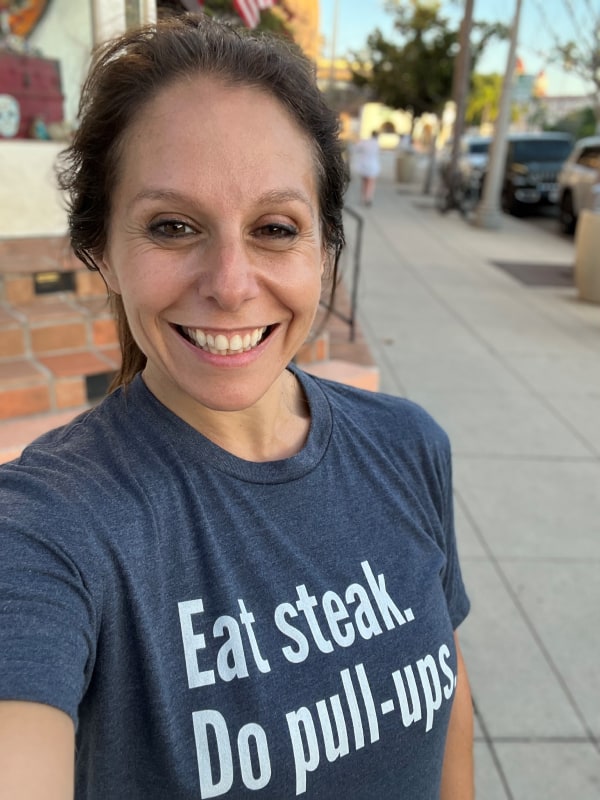Ulupreneur Heather Shen credits her family for the work she’s doing today. After her parents immigrated from China and landed in Rhode Island, Heather had to figure out what it meant to be Chinese American while growing up in a mostly white and homogenous community. The lack of representation led her to ponder questions such as “What does it mean to be Chinese and American when so few people look like me?” and “What does it mean to be a leader and successful in America?” Her mother, recognizing this, would come to her schools to share about Chinese history and culture, which was Heather’s first experience with perspective-taking and sharing across differences. The impact of these experiences and questions inspired her to explore ways to strengthen communities and bridge those differences.
Heather gravitated toward engineering, believing it could be a tool for changing the way people work and communicate with one another. She asked herself, “How does using technology influence the way we think and work together?” She was completing her master’s at Stanford in engineering, with an emphasis on machine learning, when she met her co-founder Elise Smith, who was getting a master’s in education and an MBA.
 Together, they took a class that focused on ways to use virtual reality (VR) to understand empathy. Through interviews they conducted for the course, they realized there was a deep need to improve the way we talk about justice, equality, diversity, and inclusion, which they call JEDI. They believed that as women of color and people with those lived experiences, they were in a great position to help address the deep, untapped problems involving conscious and unconscious bias. In 2019 they launched Praxis Labs, a platform that uses immersive learning experiences to train, measure, and improve justice, equity, diversity, and inclusion in the workplace.
Together, they took a class that focused on ways to use virtual reality (VR) to understand empathy. Through interviews they conducted for the course, they realized there was a deep need to improve the way we talk about justice, equality, diversity, and inclusion, which they call JEDI. They believed that as women of color and people with those lived experiences, they were in a great position to help address the deep, untapped problems involving conscious and unconscious bias. In 2019 they launched Praxis Labs, a platform that uses immersive learning experiences to train, measure, and improve justice, equity, diversity, and inclusion in the workplace.
Praxis raised $15.5M in Series A funding last year and Heather was named in Forbes’ 2021 30 Under 30 List in the education cohort. We spoke to her about what drives her passion to help solve workplace inequities.
How did you get your first customers?
When we were doing our research at Stanford, we spoke to over 150 chief diversity officers and heads of learning development. By the end of the class, they were telling us, “If you build it, we will buy it.” So we applied for student grants and fellowships and bootstrapped our product to build a very rough prototype. We spent the summer piloting it with paid customers and saw the efficacy and the impact that one learning module could make when combined with the experience of virtual reality. Those first customers, eBay and Google, have been foundational in their feedback and support as we raised our Seed and began to scale.
Why Praxis Labs, why now?
Praxis is unique because it is an end-to-end justice, equity, diversity, and inclusion solution. We are a learning, listening, and actioning tool. Not only do we offer immersive learning, which provides the opportunity to practice and build empathy, but we also share back actionable insights, so that learners at all levels can continue growing and thinking about how they can move the needle to increase equity and inclusion within their own workplace. We are also working directly with organizations and customers to make sure that they are thinking about the structural and systemic recommendations that can really move the needle in their work environment.
What have been your biggest challenges?
One of the biggest challenges is probably thinking about what it means to be a justice, equity, diversity, and inclusion company as a startup. There’s been a conscious effort on our part to sometimes slow down, which is very counterintuitive in the startup world. In many ways, we’re trying to go against the grain of what other playbooks have told us, especially in terms of hiring to support rapid growth.
“We’ve been really intentional about our hiring goals to reach and develop historically underrepresented groups, which might mean it takes longer to fill a role, but results in a more diverse team and a stronger product.”
We’ve also invested early in our people, ensuring people are able to take paid leave for mental health, trauma healing, and chosen family leave.
What are your tips to founders when fundraising?
Find a community of folks—either other founders, other mentors, or folks who have gone through this process—that you can learn from and share experiences with. Fundraising is not always an easy process, and being able to bounce ideas off of peers and realize that you’re not the only one dealing with these questions and challenges can be empowering. It’s also great to have a community of folks who are excited and rooting for you.
Specifically for entrepreneurs who are women and people of color—I know I am often my biggest critic—sometimes we need to be unafraid to get out of our heads and give ourselves permission to ask for what we believe we are worth.
What are your dreams for Praxis Labs?
In the next decade, I want Praxis to be a tool to help upskill employees across the modern diverse workforce, whether it’s high-volume workers, healthcare, corporate, education. I think we’ve only scratched the surface with where we can reach with immersive learning and the impact we can have across industries; there are countless applications on how we can integrate justice, equity, diversity, and inclusion learning into our everyday work life and the products and services we build.




